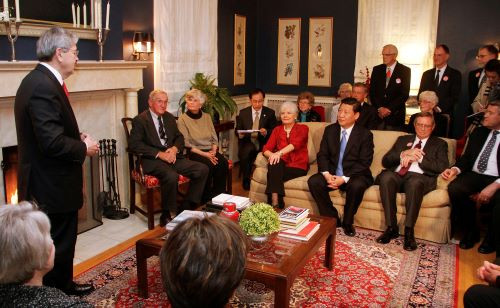The People's Bank of China announced this week that the Chinese Yuan is at its strongest at 7.0080 per dollar. Stocks in Asia were mixed at the same time and investors continue to monitor the developments arising from the China-US trade war.
According to a report on CNBC News, Mainland China's stocks plummeted on Wednesday. Shanghai's composite was down to 0.43 percent or to 2,978.60 while Shenzhen's also declined by 0.868 percent or 1,641.23. Despite these declines, the Chinese yuan strengthened. It had a below seven-level against the dollar last Tuesday.
After the show of improvement, China's central bank then set the midpoint for the yuan at 7.0080 per dollar. The onshore then yielded 7.0019 while the offshore traded at 7.0024. The report indicated that investors found the improvement of China's currency as a good opportunity to invest in industries affected by the China-US trade war.
The report indicated that the trade deal urged US President Donald Trump to further lower the tariff rates at about $125 billion on Chinese goods that were imposed last September. The term pegged as one of those raised by China for the completion of "phase one" of the China-US trade war.
According to founder and CEO of Destination Wealth Management Michael Yoshikami,
The U.S.-China trade deal, I think, is really off to a reasonable start," he said. He then added that the president believed that the progress is up to 60 percent and that that the economy would improve drastically once the deal is finalized.
The development was referred to as one of the factors that increased the value of the Chinese yuan as investors regained their trust towards the Chinese economy.
Yoshikami then added that the "phase one" terms would greatly affect both countries. He also iterated that the progress would reflection the market for the rest of the year and during the first quarter of next year.
According to the South China Morning Post, China has modified its monetary policy for it to support economic growth and resulted in the change of the yuan exchange rate. Leading economist and former adviser to the central bank Yu Yongding claimed that China has shown its unwillingness to reduce the rate below seven.
However, while the trade war is ongoing, Yongding perceived that in order for the country to boost its domestic economic activity, it may have to go under the seven threshold.
A member of the China central bank's monetary policy committee and senior government adviser Lui Shijin claimed that China's equilibrium for the yuan's exchange rate consistently changes. The exchange rate was not fixed but he suggested that Beijing may give up the seven arbitrary market.





